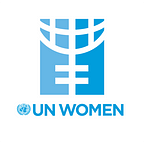The men and women shaping Africa today
Date: Friday, May 25, 2018
25 May is Africa Day, a day to celebrate Africa’s liberation from colonialism and formation of the Organisation of African Unity in 1963, precursor to the African Union.
Every day, across the continent of Africa, women and men are shaping a better future for their countries and the world. They are entrepreneurs, educators, peacebuilders and leaders. They are celebrated artists, unstoppable activists and unsung heroes. Theirs is an Africa of invention, progress and boundless possibilities; theirs are the stories that didn’t make the headlines, but made all the difference.
On Africa Day, meet some of the African trailblazers working for women’s rights and gender equality whom we admire.
Purity Soinato Oiyie, Kenya
At barely 11 years of age, Purity Soinato Oiyie, a Maasai girl from Kenya escaped Female Genital Mutilation (FGM) and child marriage. She went on to complete her education and at age 22, she addressed the UN’s largest gathering on gender equality and women’s rights. She is an inspiration for girls in her community and a relentless advocate of girls’ education and ending FGM.“What we need is free education for girls. The Maasai are pastoral people and many parents don’t have money to send their girls to school,” says Purity.
“I want to set up a foundation called “Silan” — that means girl, in Maasai — and build a free school for all the girls in the village — even the ones who have been married young and now have children themselves.”
Hajiya Amina Ahmed, Nigeria
Hajiya Amina Ahmed is a peacebuilder from Nigeria who works across religious and ethnic lines to empower women and build peaceful communities. She is the Executive Director of the Women Initiative for Sustainable Community Development in Plateau State, Nigeria.
“Women are typically the most-affected in conflict situations, but are excluded from decision-making processes concerning peace and security. Why is it so? If I am on the receiving end of violence, should I not be included in the discussions to end it? Women are leaders; we are peacemakers. When women are educated and enlightened, we have the potential to become models in our community,” Hajiya says.
During a recent visit to a rural community, Hajiya, along with other women peacebuilders, convinced the community leader to appoint women in the traditional councils for the first time.
Olivier Mukuta, Malawi
Olivier Mukuta is a social innovator who grew up in a refugee camp in Malawi. Today he is working to create blockchain technology solutions to help empower women in humanitarian crisis situations.
“In Malawi, my mother was a hair-dresser. A lot of women came to her to do these styles, of course some of them would pay her,” remembers Olivier. But cash created friction between men and women in the camp.
Olivier and his team came up with VipiCash as a solution, an app that uses blockchain technology to enable secure money transfer between women. “I can send money to my aunt or family and friends and lock it in to a specific service, like school fees or groceries. The money can only to be managed by my aunt because she knows best what is good for the children.”
“Our dream is to help women run their own businesses through VipiCash.”
Mehrezia Maïza Labidi, Tunisia
Mehrezia Maïza Labidi chaired many of the plenary sessions that led to the birth of Tunisia’s new Constitution, which includes a clause guaranteeing women’s rights. A vocal advocate for young women’s participation and leadership in politics, in 2017 she took part in the launch of the African Women Leaders’ Network. The Network brings to the forefront the leadership of African women in shaping the future, especially in peace, security and development of the continent.
“Women in politics are still women. We can laugh and be joyful and still be in politics. We do not want to be like men, we want to be ourselves and still engage effectively in politics,” says Mehrezia. “I want the African Women’s Leaders Network to give visibility to women leaders across Africa. I want us to share and empower each other. Women have to be at the heart of the Africa of tomorrow.”
“A researcher recently told me that young women interested in politics in Tunisia consider me to be a role model. It’s a heavy responsibility! I want young women to believe that they have capacities. I always tell them, when you have an opinion, give it; don’t be shy. I also tell them never to settle for second or third place when they can be first.”
Sandra Letio, Uganda
Sandra Letio started a soap-making business with only USD 15. Today, she is 29 and her business is valued at USD 700,000. With sheer determination, talent, supportive parents and a team of young staff who believed in her, Letio overcame the barriers she encountered. Now, she hopes to , she inspire young entrepreneurs, and promotes equal opportunities to youth.
“When I first started, no one thought I would be so successful. Many people refused to take me seriously, or give me contracts, because I was young. Some men even harassed me; said they would give me business if I married them! But I persisted,” she says.
“I am the ambassador for youth entrepreneurs in Uganda. Whenever young people tell me that they don’t have the money to start a business, I remind them how I started, with USD 15 and an empty jerrycan, where I mixed the ingredients for my soap. We may be young, but we should be given equal opportunities.”
Originally published at www.unwomen.org.
